An estimated 90% of world trade is facilitated by maritime shipping, and as trade volumes continue to increase, the world’s busiest ports continue to grow larger and more efficient to meet demand.
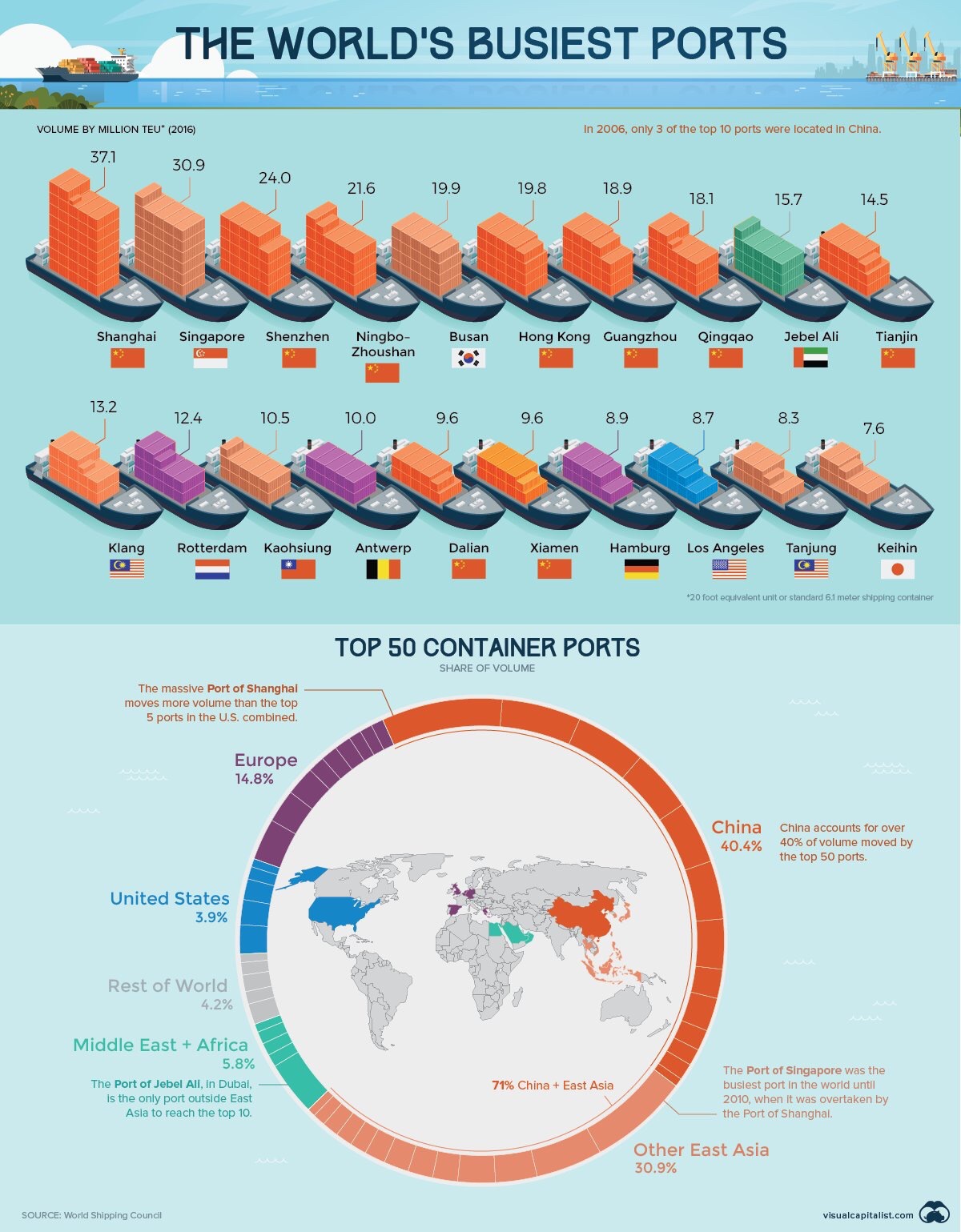
In fact, in just the last four years, the median annual volume of the top 50 ports jumped from 5.49 to 5.86 million twenty-foot equivalent units (TEUs).
Here are the world’s 20 largest ports, using the most recent data from the World Shipping Council:
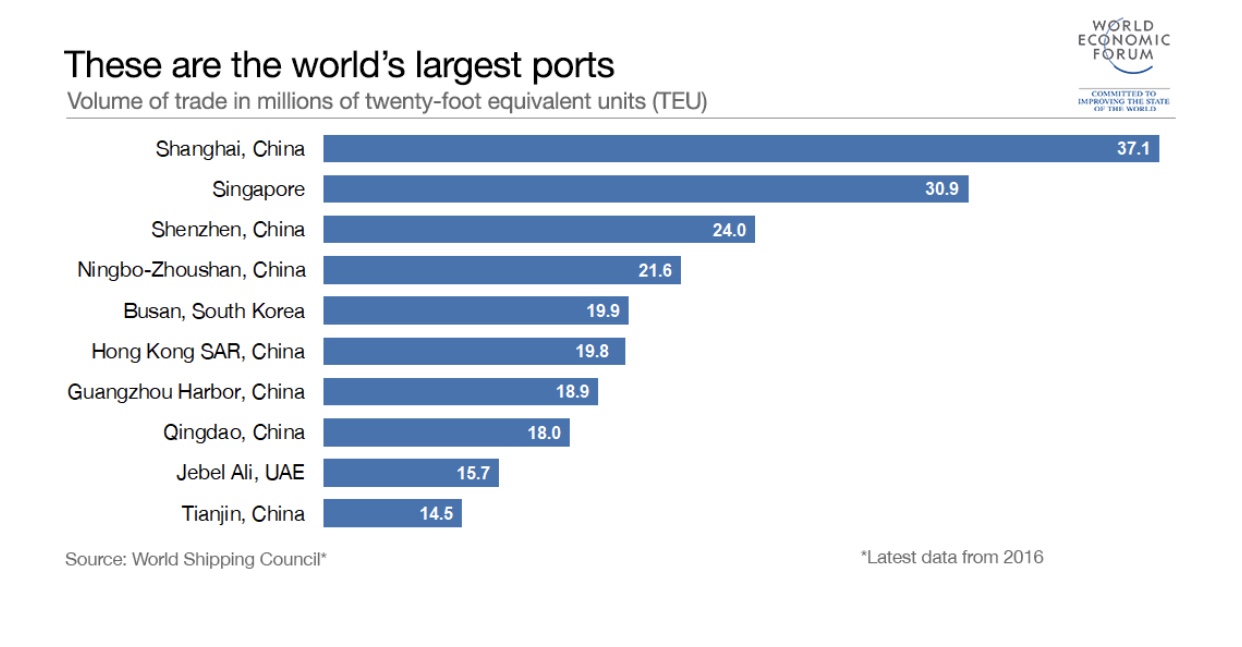
From dollar store knick-knacks to nuclear reactor components, China’s manufacturing output is a critical link in the global supply chain. Getting all those products to consumers and companies around the world is big business, and over the past decade, China has emerged as the heavyweight champion of world shipping.
While Danish company, Maersk, is still the largest shipping line, an ever increasing share of the world’s container traffic is moving through Chinese controlled ports. An estimated two-thirds of container traffic now passes through Chinese ports or ports that have received Chinese investment.
While shipping volumes on a global basis continue to rise, not all of that growth has been spread around equally. This is particularly true for established titans of the South China Sea.
At the outset of this millennium, Hong Kong and Singapore were home to the busiest ports in the world. Today, both are facing increased competition from neighboring ports, as well as declining volumes:
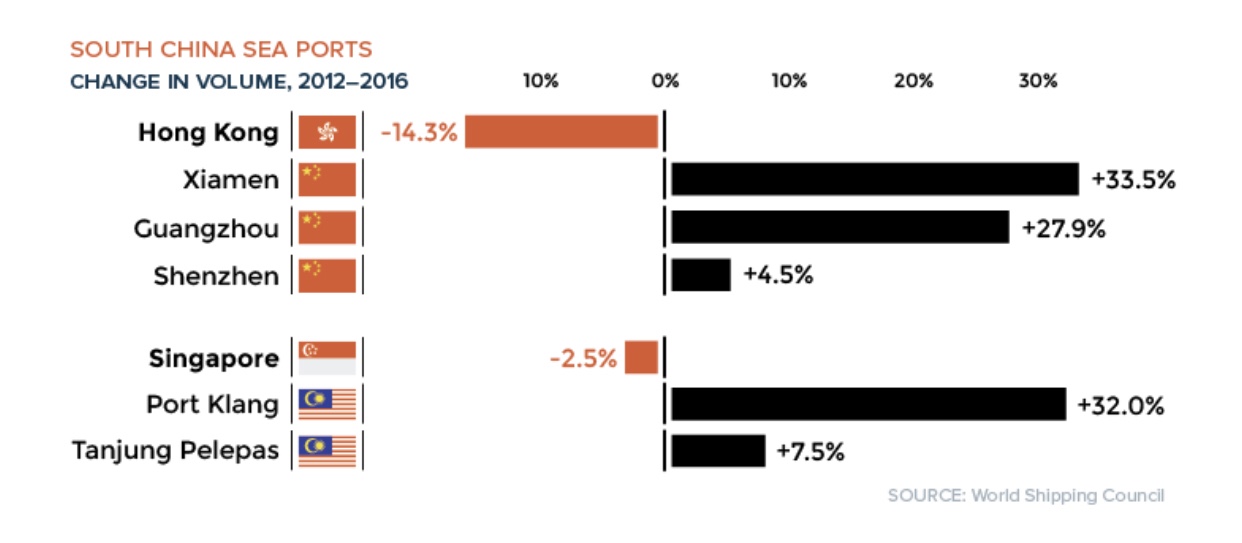
In contrast, the massive Port of Shanghai saw a 71% increase over the last decade, and many other Chinese ports has seen significant growth in volume in recent years.
If China’s One Belt One Road initiatives and investments in global port facilities are any indication, the country’s domination of maritime shipping will only continue to strengthen in the near term.
Source: World Economic Forum
Theresa May will update MPs on Tuesday about recent Brexit talks as she continues to seek support for her deal.
She visited Dublin and Brussels last week seeking EU agreement on changes to the backstop – the “insurance” policy to avoid the return of visible Northern Ireland border checks.
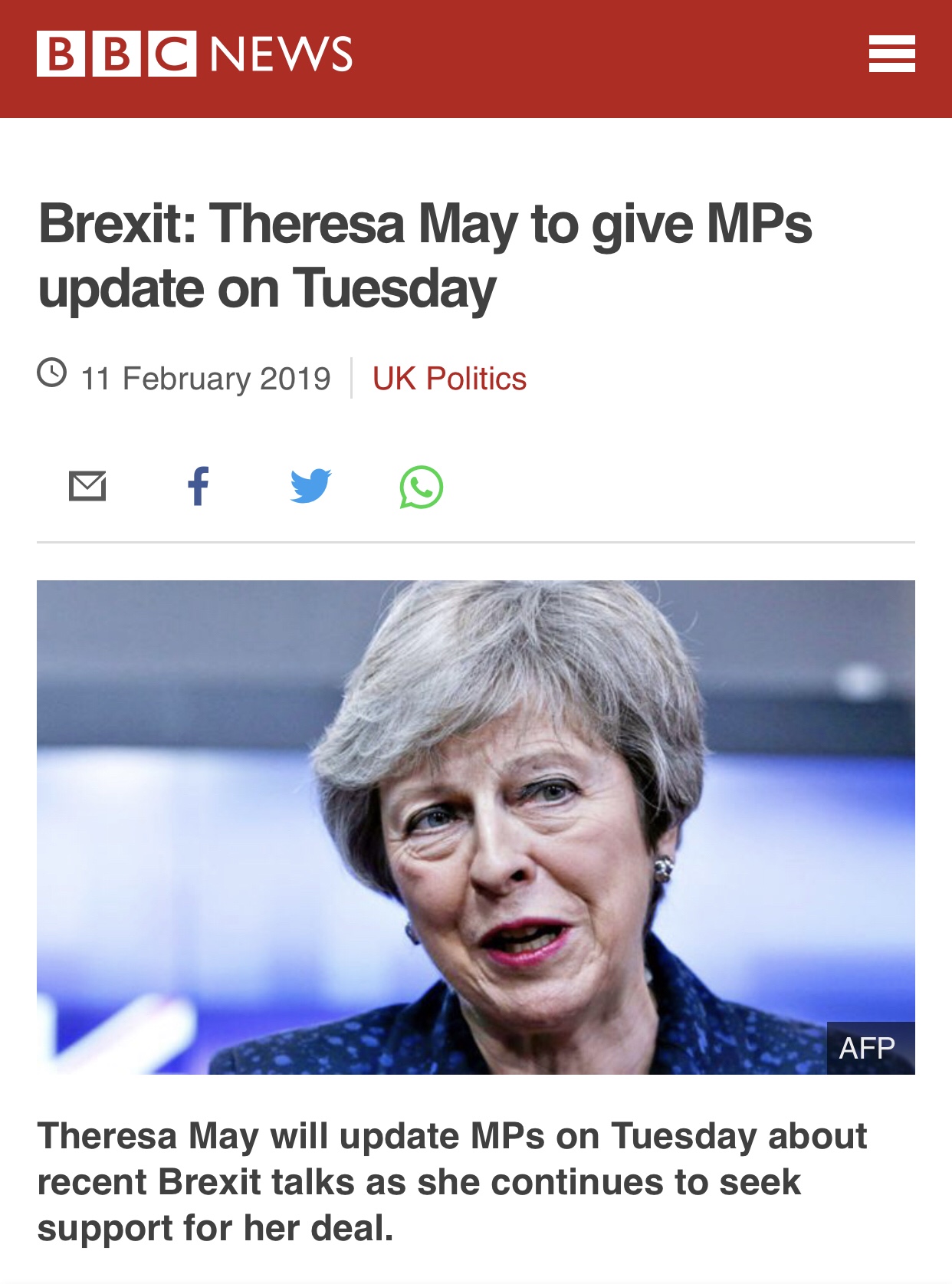
Last month MPs – who will debate Brexit on Thursday – voted for the PM to find alternatives to the current backstop.
But the EU has said it would not renegotiate the withdrawal agreement.
However, efforts to come up with a solution acceptable to both sides continue.
Brexit Secretary Steve Barclay met a group of Tory MPs working on possible alternatives to the backstop, before he travelled to Brussels and held talks with EU negotiator Michel Barnier.
Following the meeting, Mr Barnier said the talks had been “constructive”, but added it was “clear from our side we’re not going to reopen the withdrawal agreement, but we will continue our discussions in the coming days”.
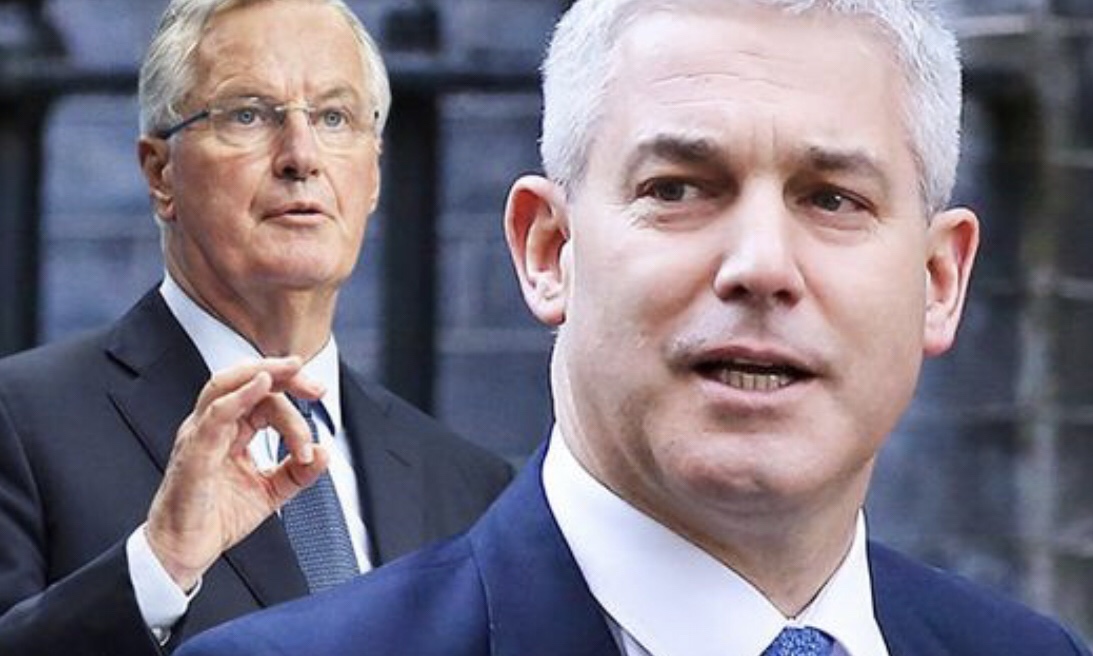
A statement from the Department for Exiting the European Union said Mr Barclay and Mr Barnier had agreed to further talks “in the coming days”. Their teams would continue to work in the meantime “on finding a way forward”, it added.
Source: BBC News
Time for new season in the Major Soccer League (MLS). Swedish international Zlatan Ibrahimovic will do his second season in the league.
This year Zlatan will be designated player and he has said that the club is going for the title.
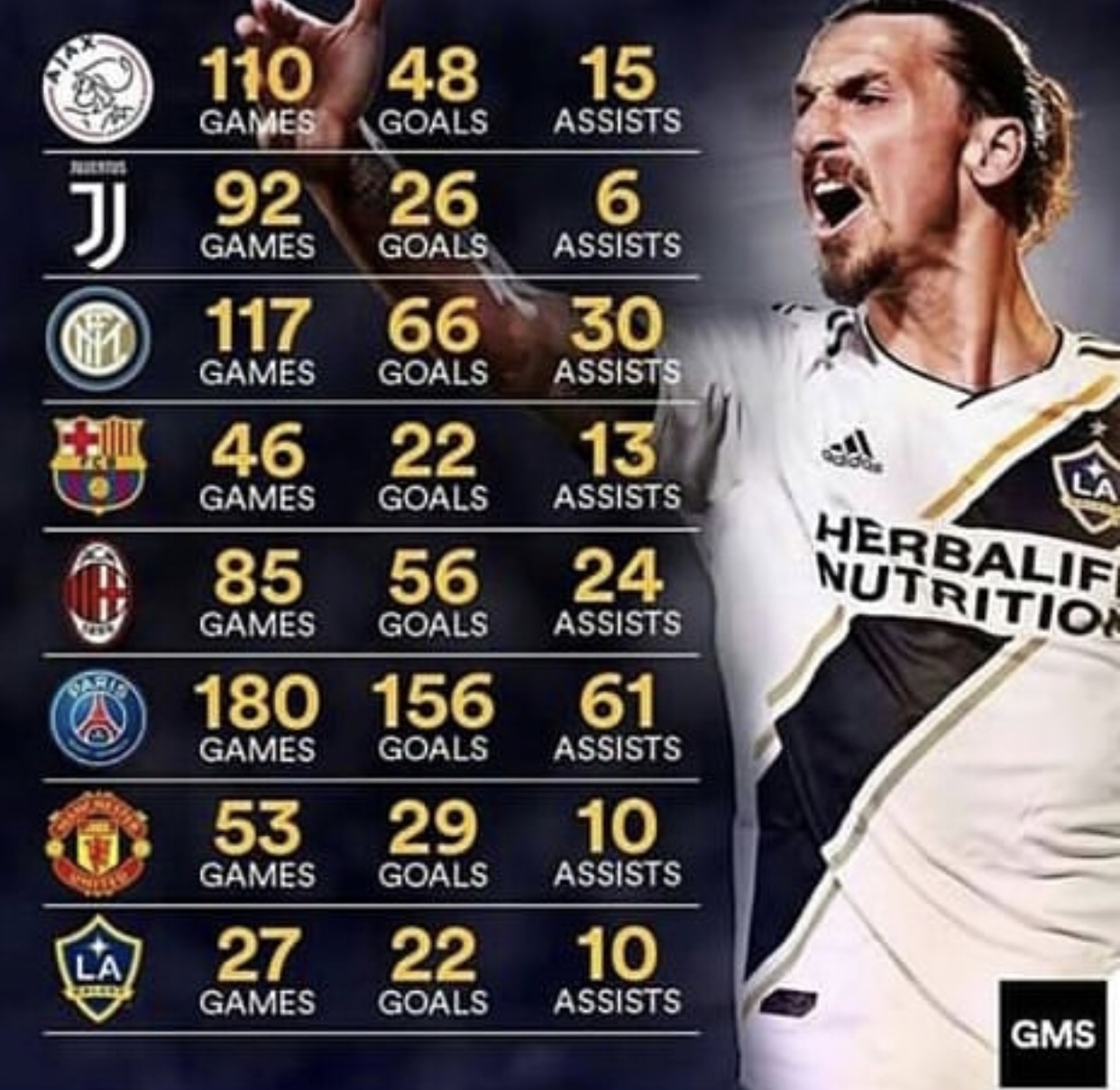 Games versus goals and assists in his career clubs so far
Games versus goals and assists in his career clubs so far
Zlatan has won titles with all his clubs, being one of the most winning players in the history of the game. Hebis also one lf the few players who has scored more than 500 goals in modern professional football.
Last season Ibrahimovic scored 22 goals and had 10 assists in 27 games. How many goals will he score this season?






You must be logged in to post a comment.